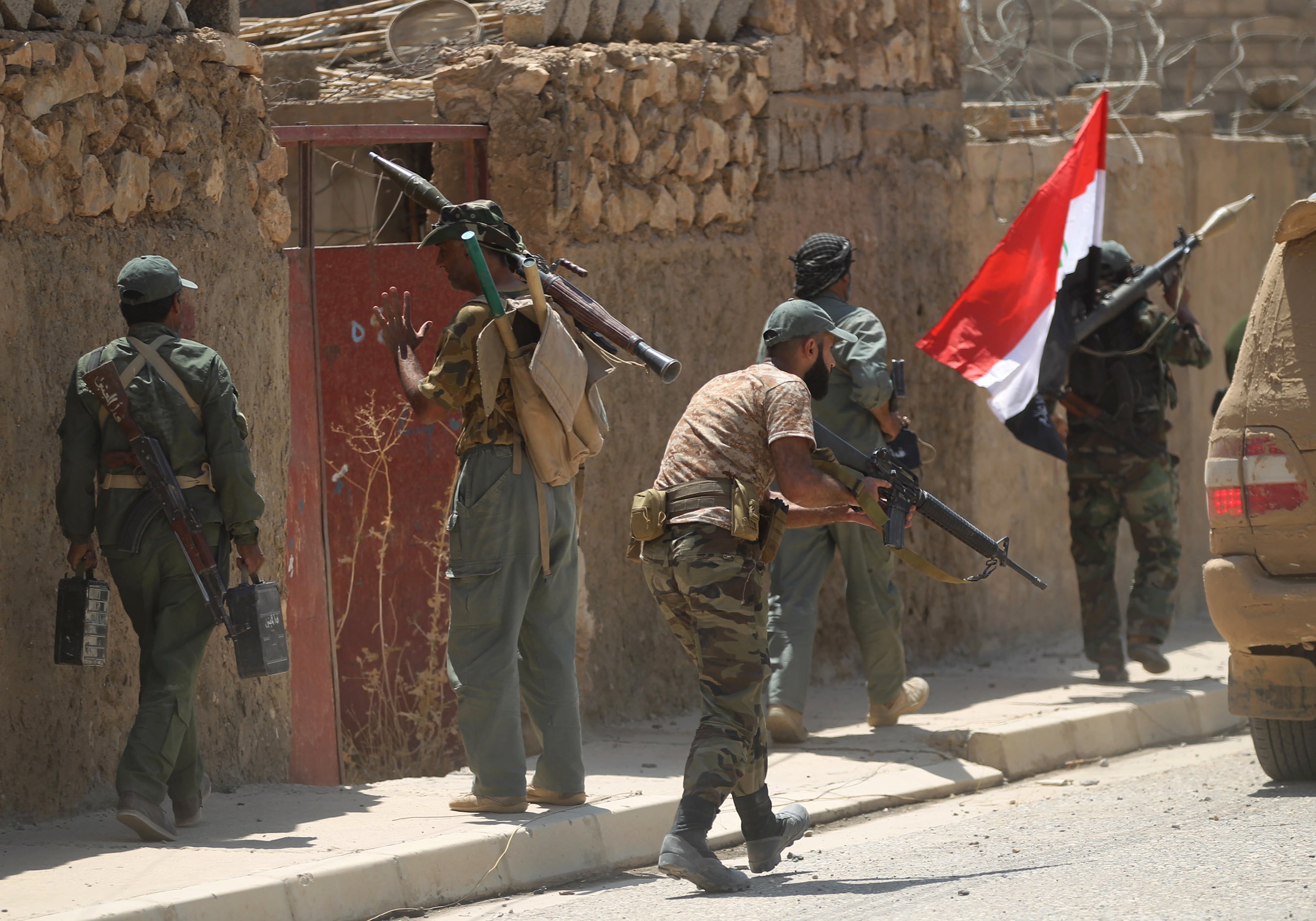GAZA CITY, Gaza Strip — Hamas’ new leader in the Gaza Strip said Monday his group has repaired relations with Iran after a five-year rift and is using its newfound financial and military aid to gear up for new hostilities with Israel.
The announcement by Yehiyeh Sinwar came as U.N. Secretary-General Antonio Guterres was visiting Israel.
RELATED

Iran was once the top backer of Hamas, an Islamic militant group that seeks Israel’s destruction. But Hamas broke with Iran in 2012 after the group refused to support Iran’s close ally, Syrian President Bashar Assad, in the Syrian civil war.
During a four-hour meeting with journalists, Sinwar said those ties have been restored and are stronger than ever.
“Today, the relationship with Iran is excellent, or very excellent,” Sinwar said. He added that the Islamic Republic is “the largest backer financially and militarily” to Hamas’ military wing.
It was the first time that Sinwar has met reporters since he was elected in February. The 55-year-old spent two decades in Israeli prison after being convicted of masterminding the abduction and killing of two Israeli soldiers. He has close ties with Hamas’ militant wing and takes a hard line toward Israel.
Israel and Iran are bitter enemies, and Israel has recently expressed concern that Iran and its Lebanese proxy Hezbollah are seeking a permanent military presence in Syria near the Israeli border. Both Hezbollah fighters and Iran have backed Assad’s forces in the Syrian war.
Guterres heads to the West Bank on Tuesday and is scheduled to visit Gaza on Wednesday. The U.N. maintains major operations in Gaza, running schools and health clinics and delivering humanitarian aid. Guterres is not scheduled to speak to Hamas.
Maj. Gen. Yoav Mordechai, commander of COGAT, the defense body that is responsible for Palestinian civilian affairs, blames Hamas for poor conditions in Gaza, saying the group tries to exploit civilians and aid programs. He also said Hamas’ refusal to return the remains of two dead Israeli soldiers, along with two Israeli civilians it is holding, hinders Israeli efforts to assist Gaza.
“The terror organization Hamas does not hesitate at all and repeatedly exploits the Gaza residents by attempting to take advantage of Israel’s assistance, despite the severe civil hardships in the strip,” Mordechai said.
In his briefing with reporters, Sinwar would not say how much aid Iran provides his group. Before the 2012 breakup, Iran provided an estimated $50 million a month to Hamas.
Hamas wrested control of Gaza from the Western-backed President Mahmoud Abbas’ forces in 2007. Since then, it has fought three wars with Israel. Hamas has killed hundreds of Israelis in suicide bombings, shootings and other attacks. It is considered a terrorist group by Israel, the United States and the European Union.
RELATED

Sinwar stressed that the Iranian aid is for “rebuilding and accumulating” Hamas’ military powers for a larger fight against Israel that is meant to “liberate Palestine.”
“Thousands of people work every day to make rockets, (dig) tunnels and train frogmen,” he said. “The relationship with Iran is in this context.”
But the shadowy leader said his movement does not intend to start a fourth war with Israel, instead preferring to remedy dire living conditions in the impoverished coastal enclave.
Israel and Egypt imposed a blockade on Gaza after the Hamas takeover a decade ago. Trying to pressure Hamas and regain control, Abbas has asked Israel to reduce electricity supplies to Gaza, and he has slashed the salaries of thousands of his former government employees there.
The result is that Gaza suffers acute power outages of up to 16 hours a day, unemployment of nearly 50 percent and widespread poverty.
Sinwar has turned to Egypt, which has begun to ease the blockade as it seeks Hamas’ help in controlling its border. The Egyptian military has been fighting an Islamic insurgency in the Sinai desert, near Gaza.
Relations with Cairo “have improved dramatically,” Sinwar said. Egypt has recently sent fuel to ease the power crisis in response to Hamas’ building of a buffer zone along the border.
“We will knock on all the doors, except that of the (Israeli) occupation, to resolve the problems,” he said.
Sinwar was among more than 1,000 Palestinians released by Israel in 2011 in exchange for an Israeli soldier, Gilad Schalit, whom Hamas kidnapped in 2006.
Sinwar said there would be no new talks over a prisoner swap until Israel frees 54 prisoners released in the Schalit swap that have been rearrested.
“We are ready to start negotiations through a mediator, but only when the table is cleaned. Freed prisoners must feel they are immune.”
Federman reported from Jerusalem.








